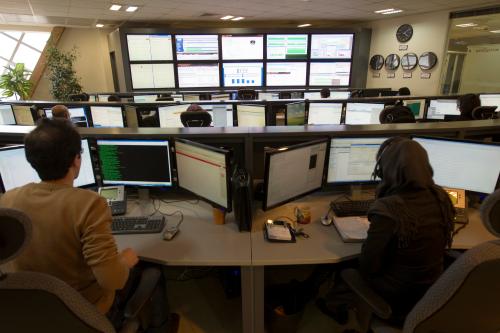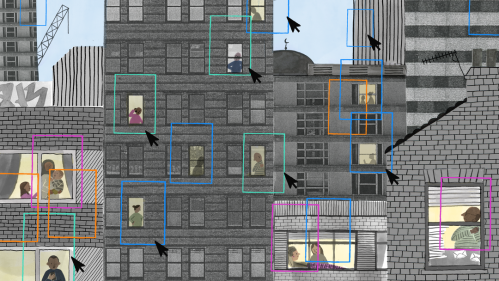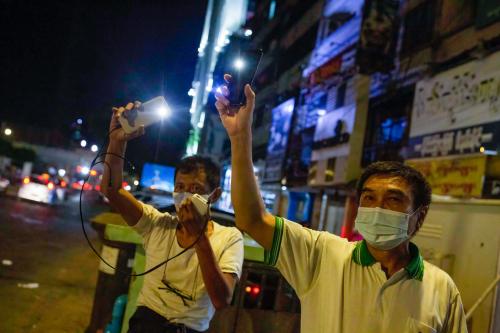This summer, the UN declared that it considers the internet to be a human right. Specifically, an addition was made to Article 19 of the Universal Declaration of Human Rights (UDHR), which states: “Everyone has the right to freedom of opinion and expression; this right includes freedom to hold opinions without interference and to seek, receive and impart information and ideas through any media and regardless of frontiers.” Section 32 adds “The promotion, protection and enjoyment of human rights on the Internet” and another 15 recommendations that cover the rights of those who work in and rely on internet access. It also applies to women, girls, and those heavily impacted by the digital divide.
There were several countries opposed to the amendments, including Russia, China, Saudi Arabia, Indonesia, India and South Africa. These countries contested language that condemned any measures to disrupt internet access or hinder the sharing of information online. However, this language was crucial to the document’s implementation and was approved in spite of opposition.
What does Article 19 mean for countries imposing internet shutdowns?
Article 19 is still considered a “soft” law in that it only recommends actions for nation-states and lacks any enforcement mechanisms as a “hard” law would. Before Article 19 came about, an initial UN report on the Promotion and Protection of the Right to Freedom of Opinion and Expression was released to stop France and the UK from blocking copyright infringers from using the internet. It also opposes the blocking of internet access in retaliation to political unrest. The release also coincided with a shutdown of Syria’s internet connection. The report aimed to set new standards for countries looking to follow in the footsteps of Syria and other countries during times of unrest in the future.
These were not the only instances of internet shutdowns since the report’s release. Since January 2015, there have been 35 recorded cases of internet shutdowns. One of the most recent shutdowns happened in October in southeast Turkey during protests against the detention of a Turkish mayor and co-mayor. Of the 35 countries imposing shutdowns, no governments have since renounced the practice, though Ghana recently promised not to shut down the internet during their 2016 election and Morocco has reversed on ban on video based applications in the country.
Though not enforceable, a UN resolution does hold some weight for countries actively working to curb corruption and gain more credibility with their citizens. Upholding the right to internet access is just one of many ways in which governments can begin rebuilding relationships with their citizens. There have been strides from countries and organizations alike to curtail the trend of increasing internet shutdowns. There is hope that the renouncing of internet shutdowns will grow and continue to gain traction on an international scale.
Pathway to the future
A global and open internet is crucial to achieving the Agenda 2030 Sustainable Development Goals (SDGs), something recognized by Article 19 and demonstrated by the actions of organizations and countries alike. The SDGs aim to create partnerships among countries, and the protection and promotion of the internet could be a key way to unite stakeholders. Though the SDGs are non-binding, 193 UN members signed and adopted the document as part of a commitment to improving the 17 listed areas of which access to the internet stands to have a significant role in. Goals that focus on economic and social growth, such as Goals 8-11, and goals that focus on peace and partnerships, such as Goals 16-17, are a few where the internet can have a strong impact on implementation and service provision.
In a world where internet shutdowns are increasing year to year, it is important that the right steps are taken to improve the relationship between governments and citizens and to uphold all human rights. The UN could advance the cause of universal internet access by using the SDGs as a stepping stone; those whose livelihoods depend on internet access or who fear that their access will be terminated will have the most to gain. The 193 signatory countries have already committed to improving internet quality, sustainability, and accessibility—a first step to internet access truly being treated as a human right.
Currently, there are only 32 countries deemed to be resilient to Internet shutdowns. The other countries lack coverage options if a few providers shut down. For example, the Syrian government can easily shut down the country’s single internet provider. Holding governments accountable for human rights violations, including restricting internet access, will advance reforms for protecting other human rights. More groups will advocate for the rights of individuals who lack reliable internet access, and more groups will organize to stop internet shutdowns.
For more information on the impact of internet restrictions, please read Darrell West’s report detailing the economic costs of internet shutdowns.
The Brookings Institution is committed to quality, independence, and impact.
We are supported by a diverse array of funders. In line with our values and policies, each Brookings publication represents the sole views of its author(s).












Commentary
The internet as a human right
November 7, 2016